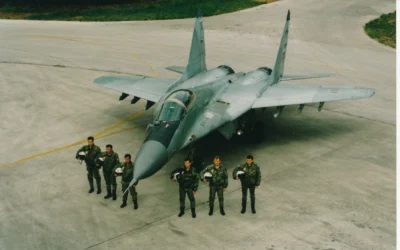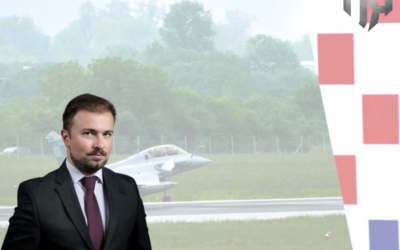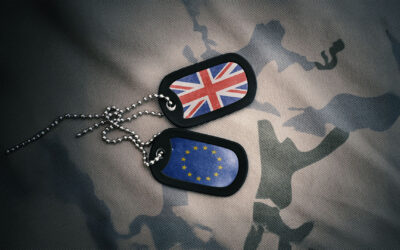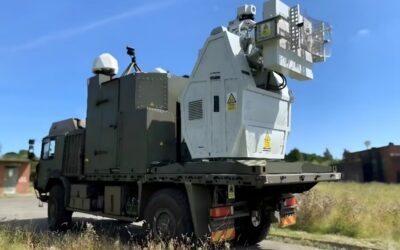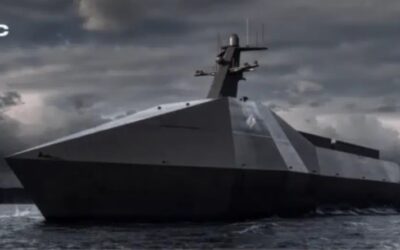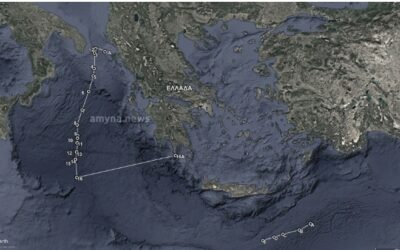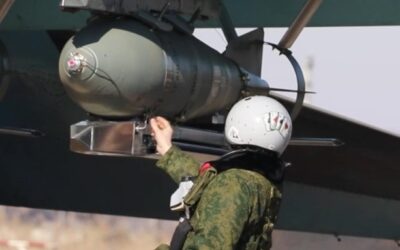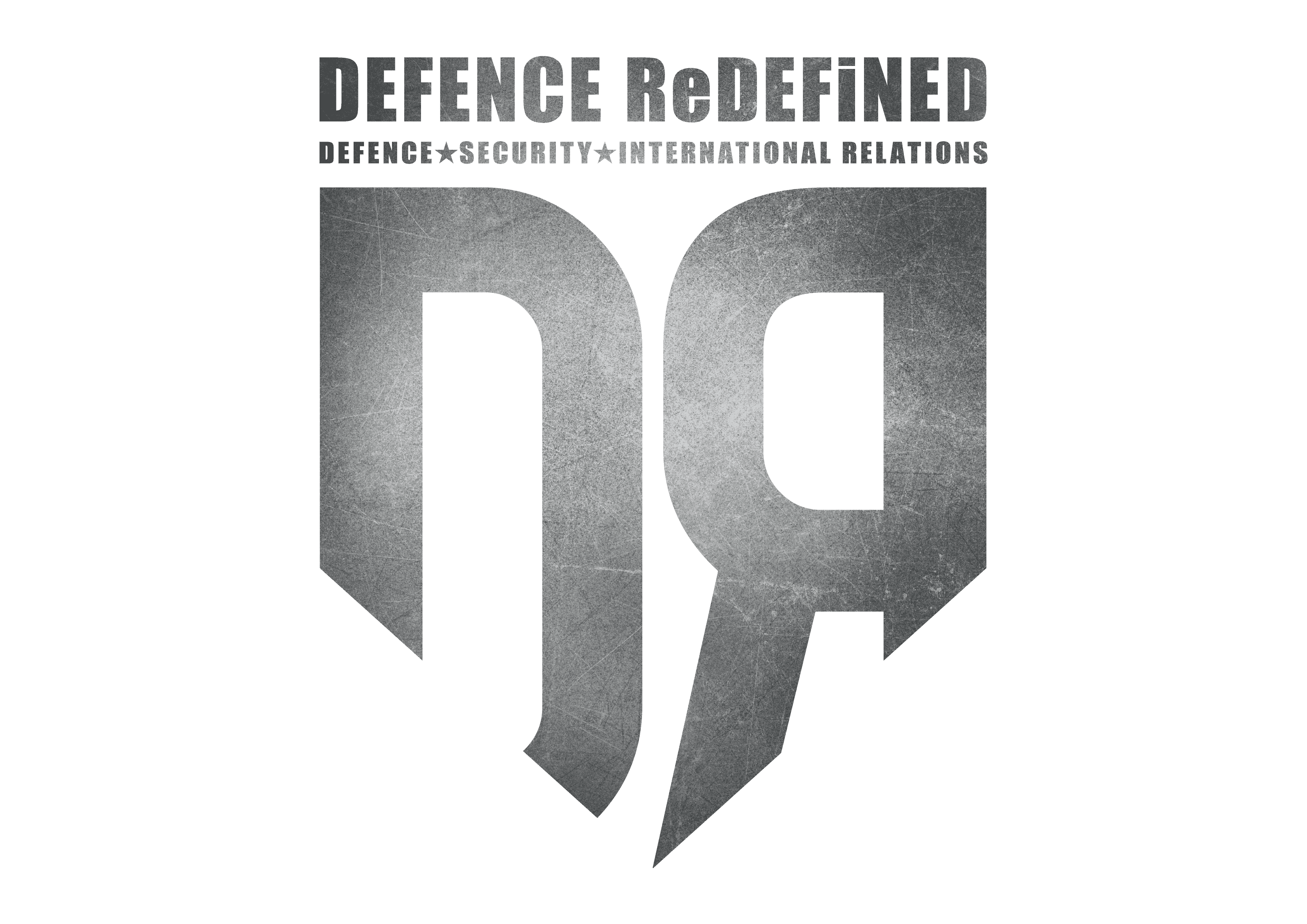Although the defence, security, and protection of the territorial integrity and independence of the member states of the European Union (EU) remain primarily…
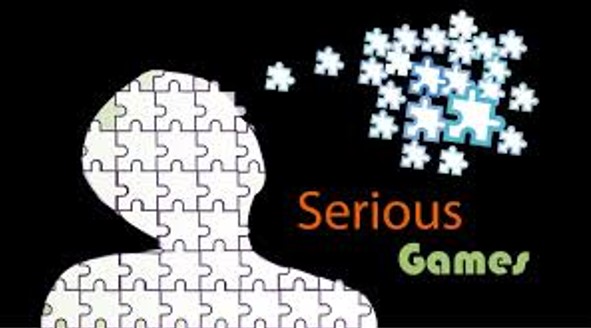
*Magnus Hakvåg, Nikolaos Myriounis & Håvard Almås
Introduction
In an increasingly complex world, one vital factor for any successful organization is continuous capability building. Capability building entails efforts to improve organizations’ prospects of success in their endeavors by strengthening relevant and necessary knowledge and skills. What this looks like in practice is highly context-dependent, but may involve, e.g., the adoption of emerging disruptive technologies, the utilization of novel foresight strategies, or the development of improved research and development processes. To achieve such capabilities, standardization can be a powerful tool. Standardization and the application of standards are vital for ensuring that materials, products, processes, and services meet set requirements and specifications. Within defense, standards play an important role in ensuring the development of interoperable capabilities necessary for bolstering readiness and responsiveness, while optimizing the use of resources. However, honing the capability to recognize the need for standards, contributing to their development, and applying standards in practice are not straightforward processes. To achieve adequate development and application, there is a need for specific training and education to improve the capabilities of relevant parties. In this article, it is argued that such training can be delivered using the medium of serious games.
The need for defense standards
Before delving into serious games as an instructional tool, it is worthwhile to consider the role of standards in defense and why the standardization process entails a complexity that can be difficult to maneuver. According to the NATO Policy for Standardization, cost efficiency, operational effectiveness, interoperability, and overall defense capabilities may be greatly improved by widespread application of standards. In the defense sector, the standardization process can take two different routes – the adoption of civil standards for defense use, or the development of specific defense standards. Relying on the former when possible and developing novel standards only when necessary, can be a cost-efficient route to realizing the benefits of standardization. A major part of the reason why standardization is considered a complex process, is that it is necessarily created through interaction between people with diverging backgrounds, perspectives, and interests. It is necessary to involve a broad base of stakeholders in the standardization process, to make sure that the resulting standard takes into consideration the needs and requirements of every party.
Applying standards within the defense sector
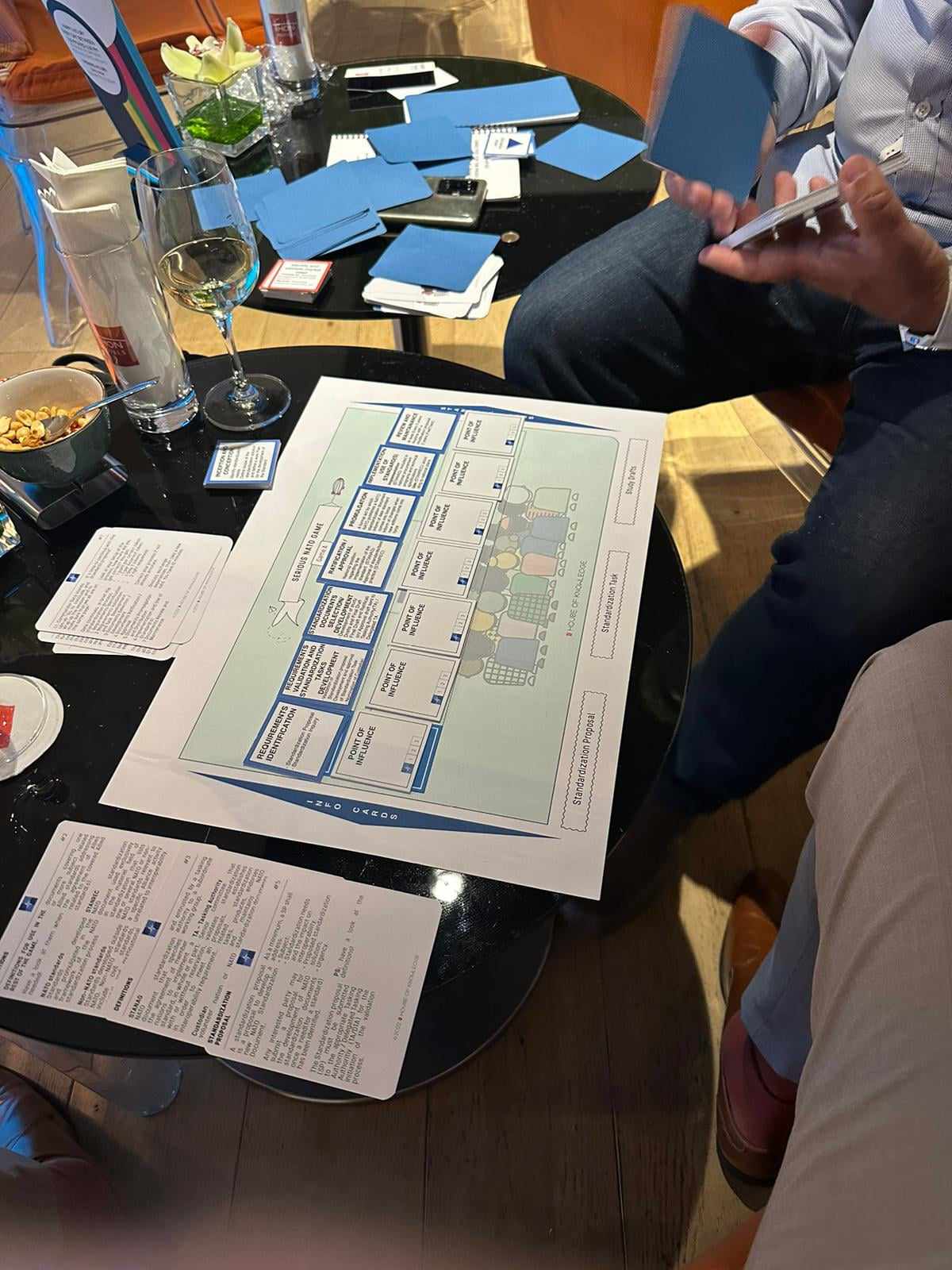
One of the main areas where the application of standards within the defense sector is seen as imperative, is military interoperability and operational effectiveness. According to the NATO Policy for Interoperability, standards are a core enabler in achieving interoperability. The concept of interoperability relates mainly to three interrelated dimensions: cultural (doctrine, terminology), technical (defense materiel), and procedural (tactics, techniques, and procedures or TTPs). In other words, interoperability relates to standardization of systems, doctrine, and training. Given that most military operations in the present period occur within a multilateral environment, there is a clear need for systems and replacement parts to meet the needs of interoperability within and between armed forces.
Serious games as training tools
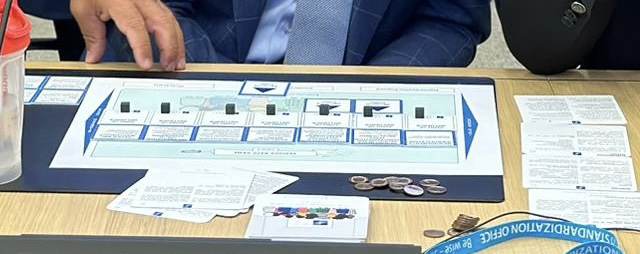
First off, what exactly is a serious game? Although many definitions exist, it boils down to being games that have a primary purpose other than entertainment (Wilkinson, 2016). Serious games can be both digital and analog instructional tools tailor-made to meet diverging needs for knowledge, which have clear benefits when used to promote learning and development (Barz et al., 2023; Wang & Huang, 2021) – especially so when applied in collaborative teams (Parker & du Plooy, 2021). Play can create a believable, relatable experience that is perceived as close to reality, untangling procedural complexities, and promoting the sharing of knowledge across team members (van Haaften et al., 2020). As such, play provides opportunities to acquire expertise through an experiential and situated activity specifically tailored to closely represent the real-world experience (Gee, 2008; Tomkins & Ulus, 2016). This makes play a great fit for building the capability to act on limited knowledge and understanding the complexities inherent to developing standards.
Moreover, the serious game approach creates a riskless environment where players can freely explore the practical application of relevant problem-solving and decision-making without fearing the consequences of failure. Not only do participants get to experience what a situation or process may be like, but they also share that experience with their peers to get insight from each other’s experiences, exchange feedback, and collaboratively decomplexify the situation (Hofstede et al., 2010). This makes it easier to establish psychological safety and sound collaborative practices in the team, whilst diminishing the effects of pre-existing social rules of interaction and hierarchies (Fyhn et al., 2023; Gabelica et al., 2016). Relatedly, play is inherently open to the exploration of different understandings, perspectives, and values – as well as the resultant diverging solutions (Almås et al., 2023; Jean et al., 2018).
When aiming to understand and analyze opportunities for standards, for instance, there is no simple, correct answer – diverging paths can lead to the desired outcome. This is important to keep in mind when discussing these issues across different areas of expertise or different backgrounds. People have different perspectives, experiences, cultures, and knowledge that shape how they work, their ideas, and the solutions they propose. Being sensitive to differences and understanding that this is a strength of collaborative work, not a challenge to be overcome, is key to finding the right way to act (Knippenberg et al., 2020). That is no easy task, however, and developing the capability to collaborate can itself be a worthwhile goal of using serious game simulations.
Existing serious game solutions
In a collaboration between the House of Knowledge (HOK) and the Defense Standardization Advice (DEFSTAND PC), the first-ever serious game on NATO standardization has been developed and delivered for the benefit of the NATO Standardization Community. In this canvas-based serious game, called Serious Defence Standard Game, participants are offered an applied experience of decision-making how standards and standardization are key components of faster adoption of disruptive emergent technologies, and how this relates to the NATO standardization process. Participants are tasked with creating a deliverable whilst going through the process and all supporting functions of the process. A goal of the game is for participants to learn about how to increase quality and reduce time spent on the NATO standardization process, as well as understand how standards are linked directly to NATO capabilities. To achieve this, player teams are presented with a simulated real case of creating a standard, wherein they must consider:
- The need, challenge, and urgency of creating the standard.
- How the challenge or need can be solved with a standard.
- The context and related overarching NATO Standardization directives and documents.
- The impact of the standard, especially for interoperability.
- The selection and use of suitable existing civil standards, to cover the standardization requirement.
By going through these steps together in a team setting, participants get to explore the complexities of how a standard comes to be, and why standardization can be a fruitful tool within defense.
Also read: Strategy for Building Up Interoperable Defence Capabilities
The same parties, HOK and DEFSTAND PC, have also developed another serious game, The Serious NATO Game. This is a board game aimed at understanding the NATO standardization development process and how to apply this process to developing NATO standards. Developing standards within the NATO development process entails a significant opportunity for broad adoption within the alliance and improved interoperability. In this game, participants go through the steps of the process in a simulated case, starting with creating a standard proposal (including the need for standard, impact on interoperability, proposed solution, and urgency) and how to get it validated, approved, and ratified. Going through the steps of the NATO development process together as a team explicates the constituent parts of the process whilst being sensitive to diverging perspectives and interests between participants. As such, sharing expertise and experiences whilst exploring what it takes to create a NATO standard provides participants with a broader base of understanding than learning about the process alone.
Conclusion
Serious games offer a novel, innovative approach to understanding and conducting standardization development and implementation within the defense sector. The simulated process can help participants understand and decomplexify the topic through an active approach to instruction. When conducted in a team environment, these benefits are amplified by simultaneous stakeholder alignment and distributed learning. Therefore, the application of serious games should be considered a powerful tool to be used broadly within defense standards work.
*Magnus Hakvåg, House of Knowledge (HOK) Owner
Captain (Ret) Nikolaos Myriounis Hellenic Navy, Defence Standardization Advice (DEFTAND) PC CEO
Håvard Almås, House of Knowledge
**The views and/or comments expressed in the articles belong to each author and may not constitute an opinion and/or position and/or be adopted as is by the company and/or the site administrators. More in the terms of use of the website.
READ MORE
The obscure files of an anniversary or David vs Goliath: The Serbian Air Force against the 1999 NATO ‘Allied Force’ Operation
The 1999 NATO intervention in the Federal Republic of Yugoslavia (FRY) marked a significant turning point in post-Cold War military operations…
A reluctant alliance? A different approach to French – Serbian defence relations
It has only been a few months since Croatia started receiving the first of the Rafale fighter jets it ordered from France.
Britain | Defence Agreement with the EU Just Around the Corner
Talks between London and Brussels on a new strategic defence deal are reportedly at an advanced stage, with British Prime Minister Keir Starmer…
UK | Trial of New RF Weapon That Downs Over 100 Drones
At the Air Defence Range in Manorbier, West Wales, the British Army has completed the most extensive trials to date of a Radiofrequency Directed…
Saronic | Acquisition of Gulf Craft Shipyard and Launch of New mUSV Marauder
Saronic has recently announced the acquisition of Gulf Craft, a Louisiana-based shipbuilder, as part of its strategy to accelerate growth…
USA – Iran | Third Round of Nuclear Talks Next Week
Iran and the United States have agreed to assign teams of experts to begin drafting a framework for a possible nuclear deal…
Greece | Declaration of EEZ in the Ionian Sea and Presentation of Maritime Spatial Map
In an initiative with significant geopolitical and economic implications, Greece has declared an Exclusive Economic Zone (EEZ) in the Ionian Sea…
Lima | Ukraine’s Game-Changing Jammer Against Russian Glide Bombs
Ukraine has deployed a new electronic warfare system that is reshaping the dynamics of aerial combat on the battlefield.











